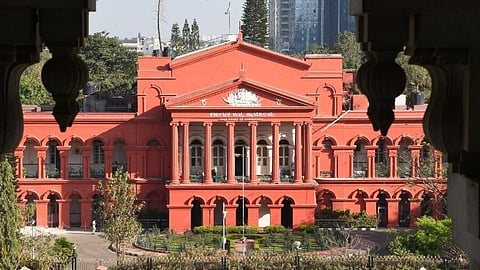

BENGALURU: The Karnataka High Court has directed the state government and Rani Chennamma University to release the retirement benefits and leave encashment, including arrears of pension with six percent interest, to M.A. Dhavaleshwar, a retired Grade-I principal of Sangolli Rayanna College in the Belagavi district.
Justice M. Nagaprasanna, while allowing the petition filed by Dhavaleshwar, criticized the delay in granting his benefits. "The state wants to play with the life of the petitioner. The petitioner is now 70 years old, having retired 10 years ago, and has been fighting for a grant of his terminal benefits for close to six years up to the date on which this court would pass orders and now again for a grant of appropriate terminal benefits in full. The prayer is clear that he has to get close to Rs 30 lakh as terminal benefits," the court stated.
The court rejected the university's argument that the delay was due to a possible audit objection. "This, by no stretch of imagination, can be a reason to prevent benefits to a teacher for ten years. The objections are vague. In these indecisive communications between the government and the university, who suffers is not the person who wants to obfuscate the issue, but the poor teacher who is made to run pillar to post to get his terminal benefits," the judge remarked.
Dhavaleshwar was appointed as a professor at Sangolli Rayanna College in 1982. The institution, which received state grants, later became a constituent college of the newly formed Rani Chennamma University. As a result, he became an employee of the university and retired on August 31, 2015. However, he did not receive any terminal benefits.
Despite years of correspondence between the university and the government, no payment was made. The government eventually directed the university to pay the benefits from its funds, but the university refused, citing complications and objections during audits. Dhavaleshwar repeatedly submitted representations, but his pension was still not granted.
In 2020, he approached the High Court, which directed the release of his terminal benefits. When the order was not followed, he filed a contempt petition. The contempt case was later closed, allowing him to file another petition. He then moved the court again, seeking the release of his benefits with interest.
The petitioner's counsel argued that Dhavaleshwar had been left without a single rupee of pension for six years due to a dispute over which authority should pay. He pointed out that the petitioner had served for 33 years but was being denied his pension because he spent his last three years as a university professor. He also highlighted that gratuity had not been paid, and only partial payments were made for the sake of compliance in the contempt proceedings. A substantial amount was still pending.
The High Court has now ruled in favor of Dhavaleshwar, directing the government and the university to release his pending benefits along with interest.